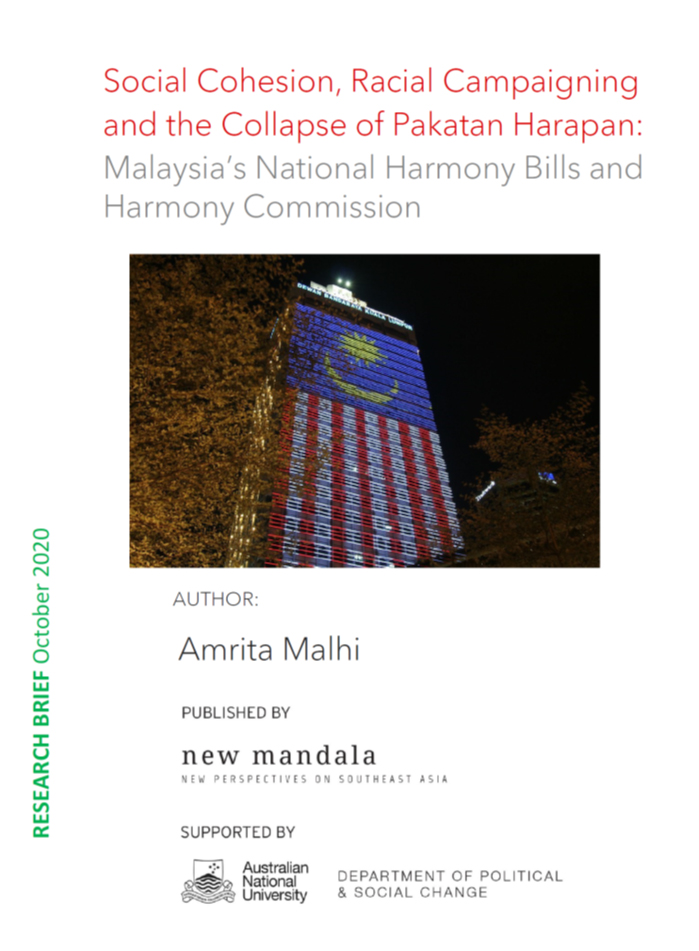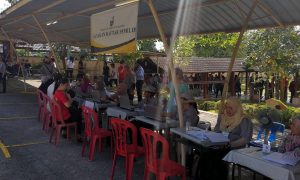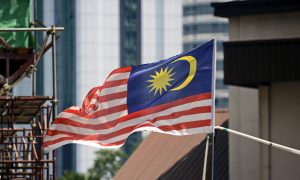In the lead-up to next month’s federal budget, Malaysia’s present government could be on the verge of collapsing, unless negotiations between Prime Minister Muhyiddin Yassin and government partner UMNO salvage his majority between now and then.
This latest instalment in Malaysia’s ongoing political crisis was launched when opposition leader Anwar Ibrahim announced on 23 September that Muhyiddin’s parliamentary majority had crumbled and he “had the numbers” to form a new government in his place. Anwar’s own, short-lived, Pakatan Harapan (PH) government (2018-2020), led by former Prime Minister Mahathir Mohamad, fell in February. If Muhyiddin falls now too, Malaysia will have transformed from a nation that had a single, 60-year government to one that has had three governments in one year.
Meanwhile, party factions and powerbrokers continue to test every possible combination of allies and frenemies in the search for one that can hold itself together, and, maybe, if they’re inclined, implement a few reforms. That’s if they can convince the regime’s clients and beneficiaries to allow them to succeed.
Yet given the fast pace of developments now, it is important not to let PH’s own collapse pass by without sufficient reflection. After a victory that was unexpected by many observers, yet which created strong (and overly optimistic) reform expectations as soon as it took place, PH was unable to implement its purported reform agenda, which it began to downplay soon after being elected. Nor could it quickly replicate the boom years which preceded the Asian Financial Crisis of 1997-98, despite its nostalgic election campaign which harked back to this period and featured images of former Prime Minister Mahathir Mohamad, and his former deputy Anwar Ibrahim, smiling together. After all, PH’s term was bookended by two fiscal events that proved difficult to manage, especially given Malaysia’s pre-existing economic challenges – 1MDB and the onset of the COVID-19 pandemic, along with the serious economic contraction it has triggered.
The recession now eating away at Malaysian living standards is amplifying several important factors that have disrupted political and institutional life in Malaysia since the beginning of this century. The factor I cover in my new report is the loss of a model for fostering social cohesion, especially by managing the racial and religious grievances held by its diverse population, which Malaysia classifies into “races.” In conditions of economic growth, such as those assumed by the New Economic Policy launched in 1970, followed by its 1991 successor, the National Development Policy, Malaysia has largely been able to restructure society to eliminate the colonial identification of race with economic function.
Even while it has done so, however, the structure of public debate in Malaysia has also served as a masterclass in how political campaigns can deploy racial and religious themes to block national discussions, especially in concert with governments who respond by co-opting them. At the same time, these same governments have invested in developing national frameworks like Vision 2020, with its unrealised ambition of a post-racial society by this year. Such frameworks generally help to acculturate Malaysians into accepting their society’s system of racial clientelism. In the words of Malaysian sociologist Sharon Siddique, “[s]ocial cohesion and economic growth, and the intrinsic link between the two, were taken for granted. In the ever-expanding-pie scenario, everyone’s slice would grow, even if some received slices that were slightly more generous than others.”
In my new report, I look at PH’s failure to articulate a new formula for new times, in which the pie has ceased to expand: over the course of the pandemic, Malaysia has launched several large-scale stimulus packages to keep the economy going.
I do so by analysing the debates and political dynamics surrounding its proposal to enact a set of three “Harmony” laws to regulate racially provocative and/or discriminatory speech and actions in the “new Malaysia” it proposed to build. Drawing on groundwork laid by the previous Barisan Nasional government, PH proponents of these laws had hoped to replace Malaysia’s notorious Sedition Act, in particular, with legislation that was more easily defensible in terms of its democratic aspirations. The laws in question consisted of a Racial and Religious Hate Crimes Bill, a National Harmony and Reconciliation Bill, and a National Harmony and Reconciliation Commission Bill.
This proposal, however, had not progressed by the time the PH government collapsed, and it has since been shelved by the present Perikatan Nasional-led government in favour of a return to the five Rukun Negara (National Principles) drawn up in 1970. Indeed, even during PH’s brief tenure, it decided to abandon two of the three bills in question, opting to focus only on the prospect of creating a National Harmony and Reconciliation Commission. Even this more limited proposal made no progress, despite PH Minister for National Unity and Social Well-Being, Waytha Moorthy Ponnusamy, participating in some discussions on potential models for a Commission with international partners and donors.
This report argues that PH’s inability to manage racial and religious grievances in Malaysian society, and, especially, to manage racially provocative political campaigning, was the key reason that all three Bills were ultimately abandoned.
To begin with, the damaging mobilisations against the government’s separate, but connected, plan to ratify the International Convention for the Elimination of Racial Discrimination (ICERD) inflicted significant humiliation on PH. When I consulted with PH MPs and civil society and government stakeholders in September 2019, the government was reeling from the ICERD fiasco and divided over how best to manage accusations that it was empowering minorities at the expense of Malay Muslims.
Imagined minorities: rethinking race and its appeal in Malaysia
Opponents of racism in Malaysia need to understand that proponents of racial politics do believe in race—and only by understanding the appeal of racial thinking can racism be defeated.
A couple of months later, the result of the Tanjung Piai by-election reinforced the lesson that some PH MPs took from the ICERD experience, namely that the power of racial and religious campaigning was too great for the government to challenge. This is also an important lesson for proponents of a Harmony Commission. While I can think of no principled reason to oppose one, especially if it is intelligently designed, there are good reasons to be concerned that the structure and culture of Malaysian public life creates risks that must be considered beforehand. One of these risks is that such a Commission might be captured or influenced by chauvinist forces and deployed against the Malaysian public instead of assisting it.
For now, Malaysia’s political volatility will likely continue to drive developments in terms of how this government, and its potential successor/s, approach the question of social cohesion. Yet, like so many other policy questions that once used to rely on “set and forget” decisions made every twenty years, this one needs urgent attention, especially now that COVID-19 has made previous approaches look anachronistic.
 Facebook
Facebook  Twitter
Twitter  Soundcloud
Soundcloud  Youtube
Youtube  Rss
Rss 




